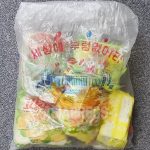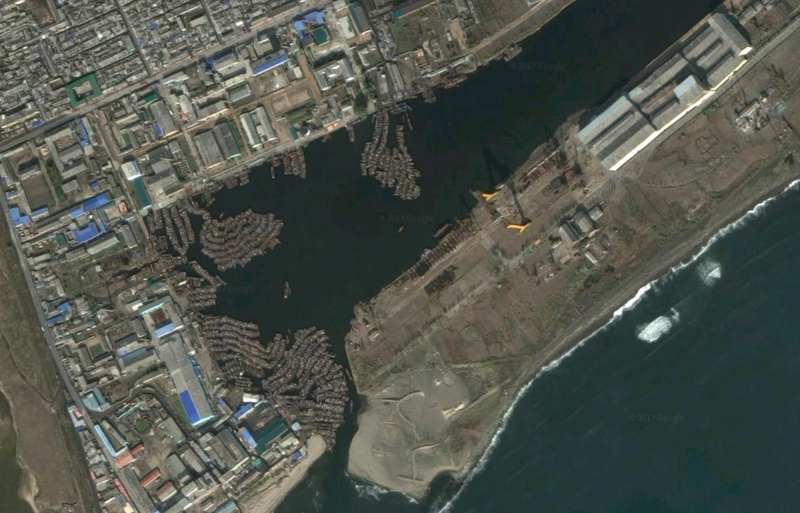
The type of fishing conducted in North Korea has changed dramatically since the mid-2000s. After the socialist system of collective fishing collapsed, the government established fishery offices under state institutions, including the military, to conduct fishing operations and export the catch to China. Aware of how much money could be made, individuals banded together to build and operate their own wooden boats in order to fish for squid. As private business is strictly illegal in North Korea, these individuals had to bribe state agencies to temporarily use official ‘signage’ for their ships.
Regarding squid fishing in 2017, a man who worked at a fishing company in Cheongjin City and defected from North Korea at the end of last year explained: “During the season, a fishing boat will usually leave the harbor for two weeks at a time. After returning with their catch, the fishermen will depart for the fishing grounds in a week. Fishermen get between two and three hundred thousand won per voyage, depending on the size of the catch. Since there are no other jobs with such a high salary, people are willing to take the risks that come with the work.”
Now, private fishermen, who had given up squid fishing due to the sanctions, are rushing back to the harbors along with many other poor North Koreans who hope to make their fortunes out at sea.
◆‘Don’t fish close by, don’t fish far away’...Kim Jong-un's conflicting orders
Last year, it was reported around the world that crudely constructed wooden boats were being frequently found adrift alongside with corpses. In October, a Pyongyang trade official who had returned from China said that the Kim Jong-un regime ordered countermeasures after losing face by such reports.
“Kim Jong-un, humiliated by the reports, forbade small fishing vessels from sailing long distances or from entering the EEZ of Japan. Also, the North Korean Coast Guard will be held responsible for future accidents at sea, which has resulted in supervision becoming more difficult. I heard that fishing boats are under orders to rescue each other in case of an accident,” the trade official explained.
At the beginning of October, Kim Jong-un ordered another ‘policy’. A ‘policy’ is an order directly issued by the leader, which officials and organizations must obey unconditionally. The title of the policy was “Regarding the active protection and growth of fishery resources”.
The North Korean trade official explained: “Due to overfishing, offshore fisheries have been depleted, so offshore fishing has been prohibited since October. Only authorized fishing boats connected to the state’s fishing project have been allowed to fish close to the shore. Other boats have to fish further off the coast.”
With one order forbidding them from sailing long distances and another keeping them from fishing near shore, fishermen are busy going out to sea as this year’s squid fishing season nears the end.
It is about 400 kilometers from the North Korean coast to Japan's EEZ. All of the recovered wooden boats are just 10 meters in length. In the fierce seas of late autumn, the boats must have been tossed about like leaves. One can only imagine what became of the people on board and what will happen to their families, waiting endlessly for their return.
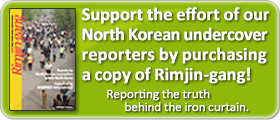 Editor’s notes on North Korean reporters
Editor’s notes on North Korean reporters
ALL REPORTS >>>
ARCHIVE(pdf) >>
DPRK MAP >>
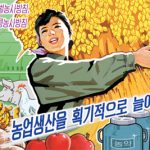
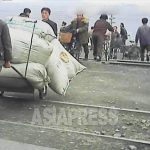

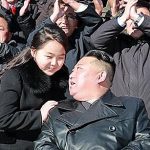
![<Latest Photo Report> Scenes of North Korea Captured by Super Telephoto Lens (1) Residents Replaced by Border Guards Along the Riverside [ISHIMARU Jiro]](https://www.asiapress.org/rimjin-gang/wp-content/uploads/2021/08/202107kokkyou1-01-150x150.jpeg)
